Convention - Comic Con France 2025: Moon Knight: Talking Marvel with May Calamawy – A Heroine’s Journey Beyond the Screen
By Mulder, Villepinte, Parc des Expositions, 12 april 2025
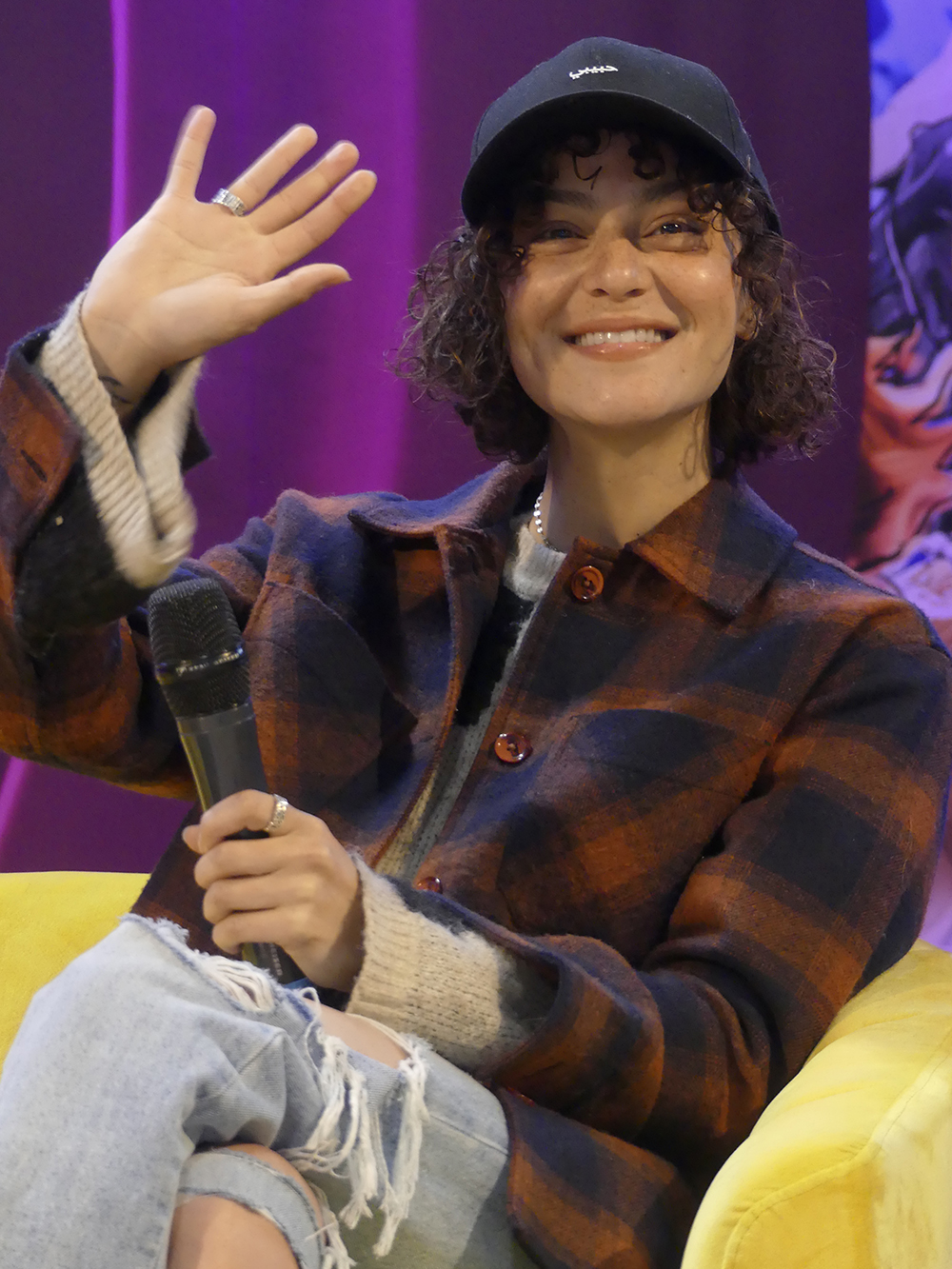
April 12, 2025, saw the Main Stage light up with an electric blend of comic book mythos, Arab representation, and heartfelt storytelling as May Calamawy stepped into the spotlight for the "Talking Marvel Moon Knight" panel. It was more than just a celebration of a character—it was a recognition of an actress whose journey through personal struggle and cultural identity has mirrored, in profound ways, the heroic transformation of her character Layla El-Faouly into the Scarlet Scarab. What stood out wasn’t just the applause for her MCU performance but the authenticity with which she shared her rise—from Bahrain to Hollywood, from personal loss to creative breakthrough, and from Moon Knight’s supporting cast to a symbol of cultural pride for millions.
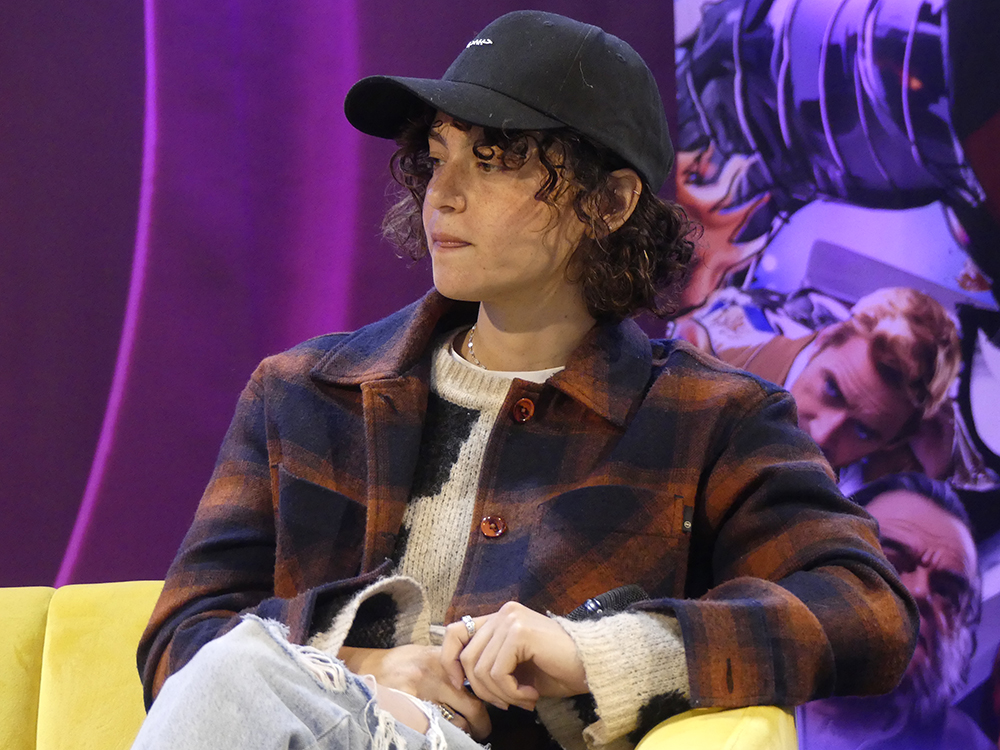
Born in Bahrain and raised between the Gulf, Texas, and later the U.S., Calamawy’s story is a mosaic of displacement, resilience, and artistic hunger. Her reflections during the panel traced the roots of her acting dream back to watching Death Becomes Her as a child, a whimsical moment that grew into something stubborn and unshakable. Though her father initially nudged her toward industrial design, her self-assured declaration—“If I get into Emerson, I’m going”—was the turning point. That same self-possession would later resonate in Layla El-Faouly’s onscreen evolution. It was deeply moving to hear how her mother, who passed away from cancer when May was 25, had transitioned from reluctant supporter to her biggest champion. That love, and the trauma of that loss, has remained a cornerstone of May’s creative lens—particularly in Moon Knight, where emotional authenticity matters just as much as special effects.
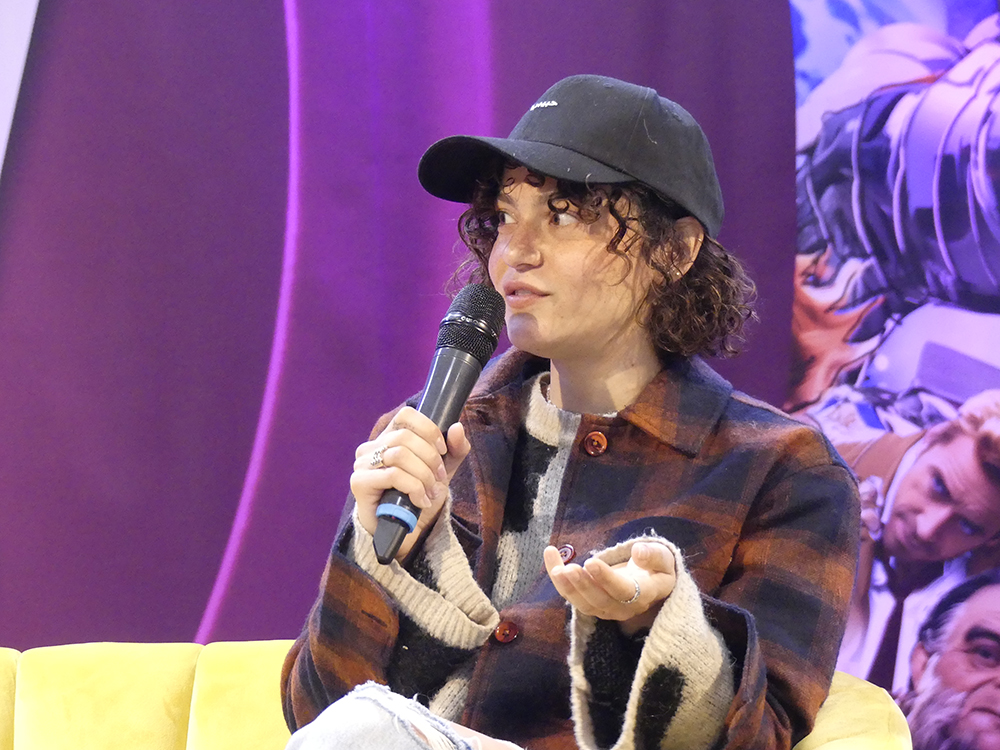
The panel naturally delved into Moon Knight’s storytelling legacy, from its origins in the shadowy pages of 1975’s Werewolf by Night to its Disney+ incarnation helmed by Mohamed Diab, whose vision pushed Egyptian culture to the forefront in ways Hollywood had rarely allowed. And that’s where Calamawy's role became pivotal. Layla wasn’t just a sidekick or love interest—she was crafted from scratch as a new character who could go toe-to-toe with Marc Spector, played by Oscar Isaac. Layla’s transformation into the Scarlet Scarab—Marvel’s first Egyptian and Arab superhero—was a narrative culmination that viewers across the Middle East and North Africa (MENA) region deeply connected with. But what few outside the industry circles know is how Diab and his wife, writer-producer Sarah Goher, had May in mind from their initial pitch. Their 200-page proposal to Marvel Studios wasn’t just about storytelling—it was about cultural reorientation, and May was at the heart of it.
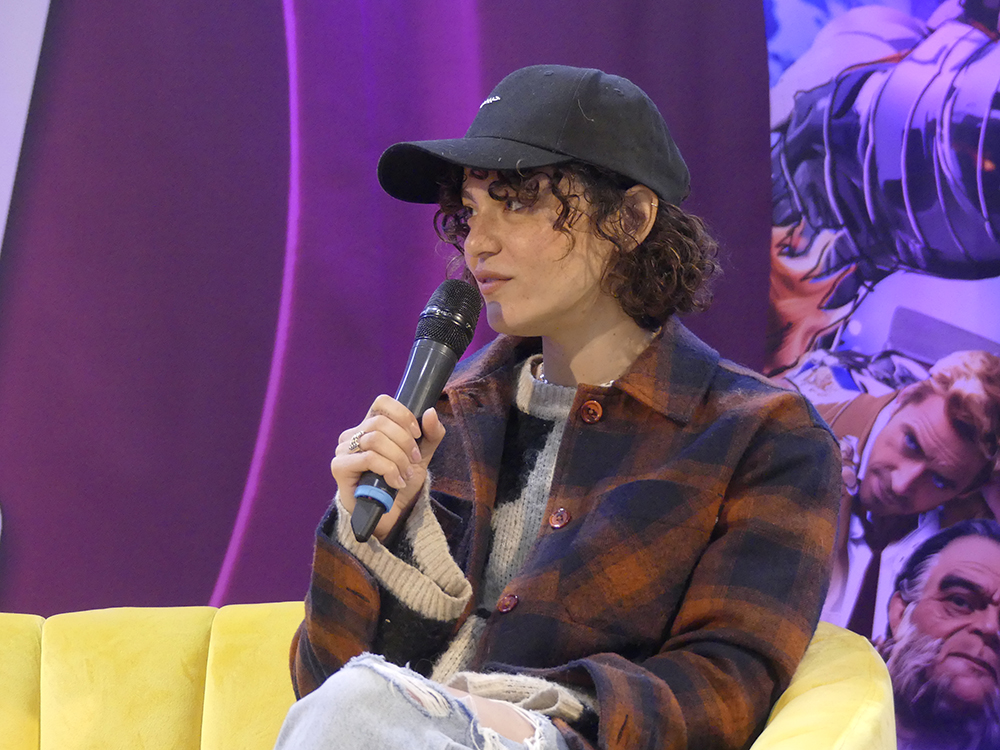
On stage, Calamawy shared anecdotes that brought a smile to the audience, such as being approached on the street by young Arab girls proudly calling her “our superhero,” or the quiet intensity of shooting Layla’s heroic reveal scene in Jordan under blistering heat and tight schedules. One poignant moment she shared was how her real-life experience with alopecia areata, an autoimmune condition she was diagnosed with at 22, shaped not only her personal strength but was also written into her Ramy character. That vulnerability, which she fully embraced, turned into an empowering message onscreen—especially within a genre that often prizes physical perfection. Layla’s power isn’t in her flawless image; it’s in her refusal to be anything other than whole-heartedly herself.
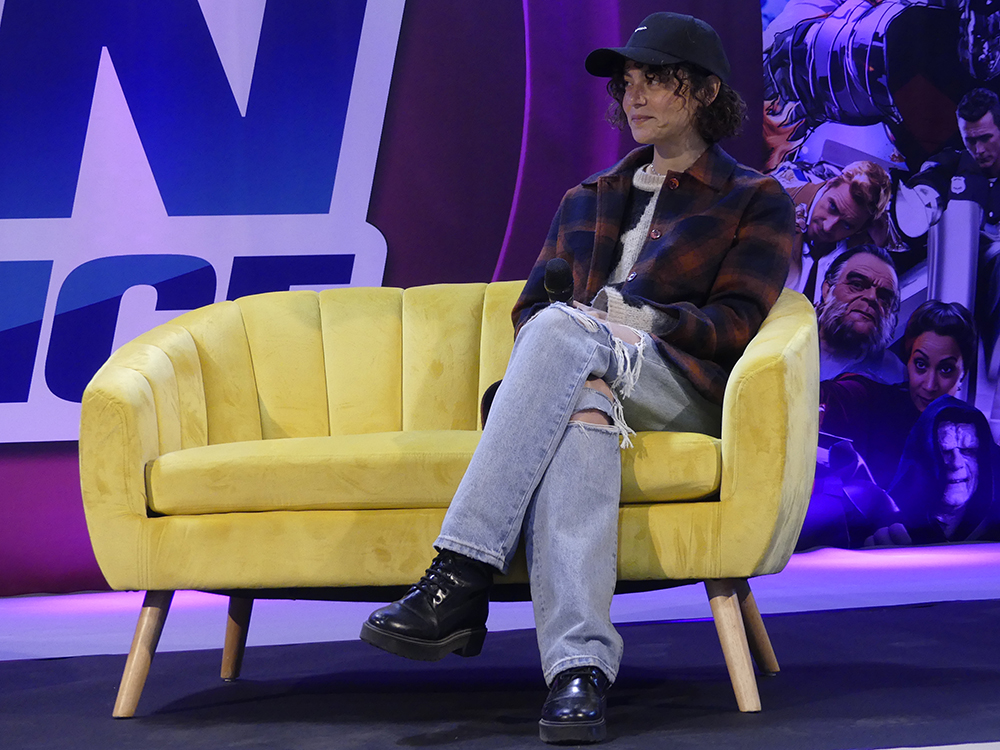
The panel also touched on Moon Knight’s distinctive place in the Marvel universe. With Oscar Isaac portraying a man fractured by dissociative identity disorder, and Ethan Hawke embodying a subdued yet menacing antagonist in Arthur Harrow, the show pulled off something few Marvel properties had: making identity—not just secret identities—its thematic core. The choice to give Layla a substantial arc was not incidental. Marvel’s usual “damsel-in-distress” trope was tossed aside. Instead, Layla was layered, flawed, passionate, and, in many ways, morally grounded in a narrative where even the gods seemed ambiguous. The decision to align her eventual transformation with the Scarlet Scarab, an obscure but symbolically potent hero from Marvel’s older comics, only added to the sense that something new was being born—not just a character, but a paradigm shift.
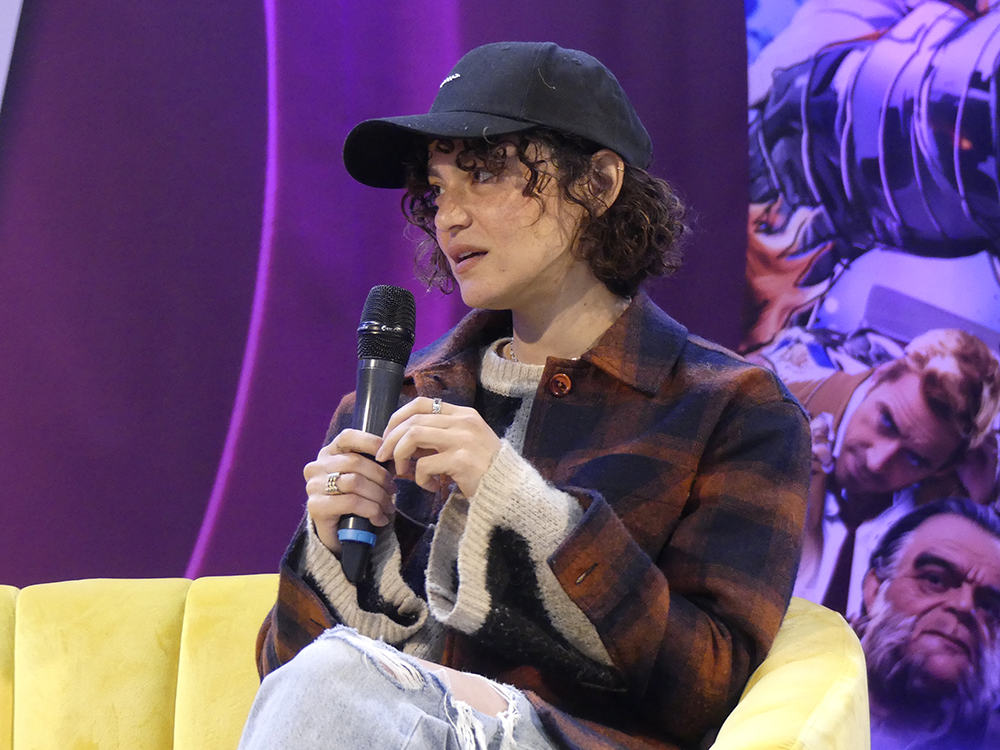
There was an especially thoughtful moment when May discussed working with Egyptian composer Hesham Nazih, who scored the series with a fusion of Western orchestration and traditional Egyptian instrumentation. That collaboration, much like her own performance, was about balance—between ancient and modern, East and West, spectacle and soul. It was also one of the reasons why Moon Knight resonated so strongly in regions that typically felt sidelined by big-budget franchises. As Diab had insisted, this was a chance to show Cairo not as a mystical ruin, but as a breathing, modern city. Calamawy, with her effortless blend of groundedness and fire, was the human face of that cultural shift.
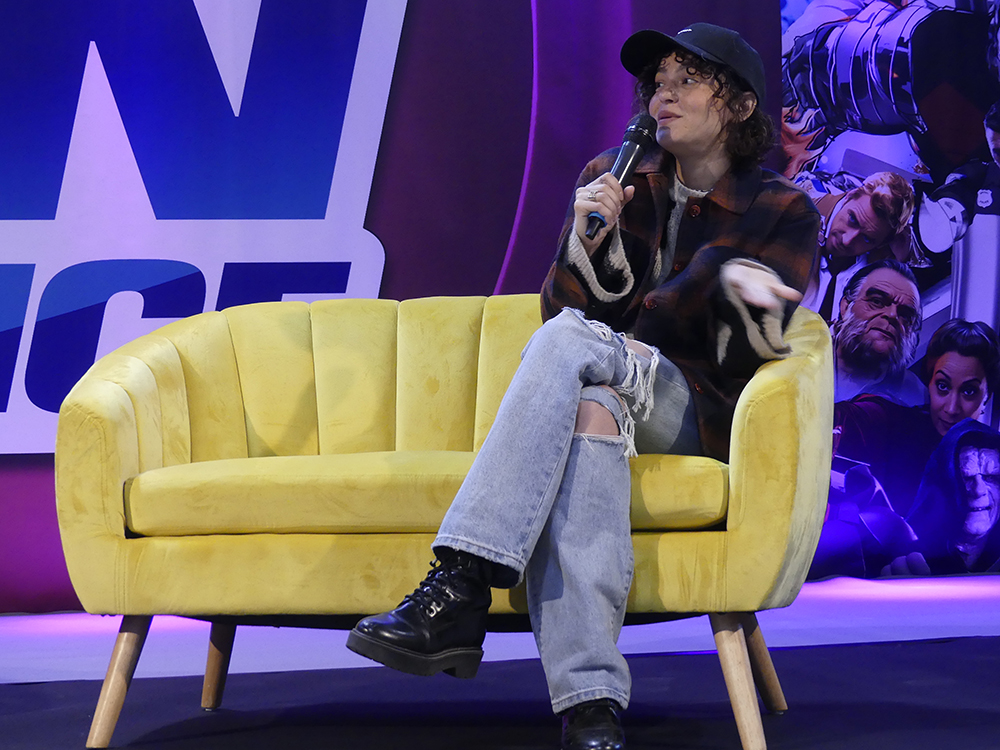
What fans may not have expected, and what the panel confirmed with quiet pride, is that May Calamawy’s journey is far from over. While her scenes in Gladiator II were eventually cut, her upcoming role in Lee Cronin’s supernatural horror The Mummy and her ambitious turn in The Actor—in which she plays five different characters—underline a trajectory that’s not just diverse but daring. And though she couldn’t confirm future appearances as the Scarlet Scarab, she was clear: the door is open, the cape is ready, and the story of Layla El-Faouly is far from finished.
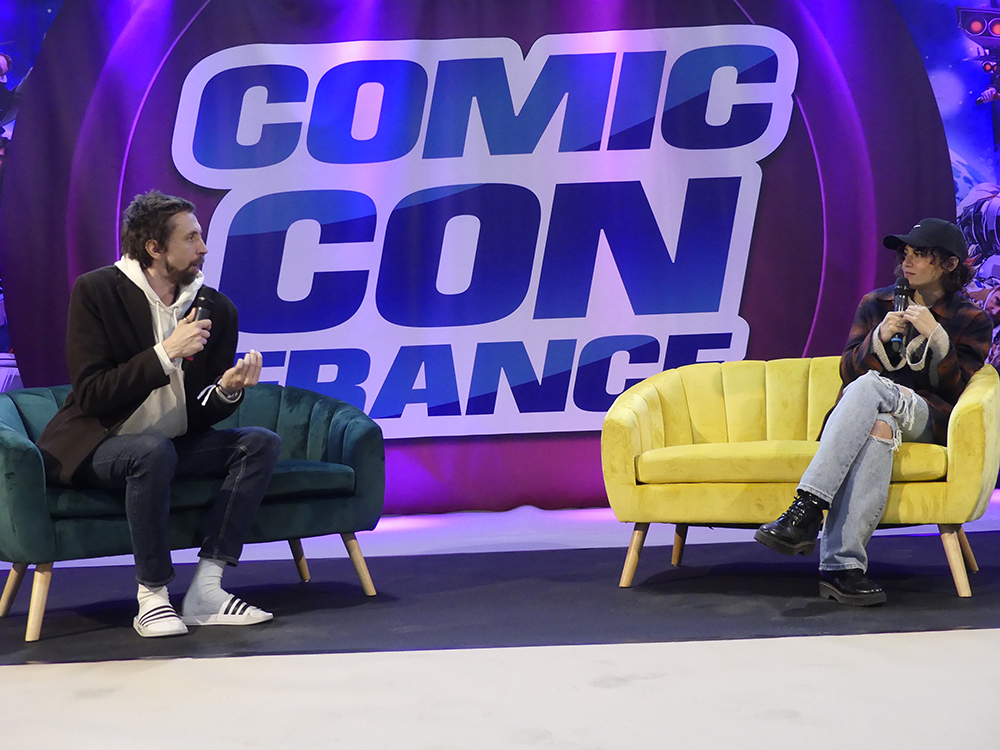
The panel closed on a high note, not with loud declarations or flashy reveals, but with a deep, collective appreciation—for an actress who’s charting a path few have walked, and for a character who now stands tall in the Marvel pantheon not only as a warrior, but as a cultural milestone. For fans of Moon Knight, and for anyone watching the MCU evolve, May Calamawy isn’t just a name to remember. She’s a beacon of what comes next.
You can discover our photos selection in our Flickr page
Synopsis :
Steven Grant, a quiet employee at a souvenir shop, suddenly starts losing his memory and is haunted by visions of another life. He discovers that he has dissociative identity disorder and shares the same body as a mercenary named Marc Spector. As the noose tightens around Steven/Marc, the two men, plunged into a perilous adventure among the powerful gods of Egypt, must find balance in their dual identities.
Moon Knight
Created by Jeremy Slater
Based on Marvel Comics
Directed by Mohamed Diab, Justin Benson, Aaron Moorhead
Starring Oscar Isaac, May Calamawy, Karim El Hakim, F. Murray Abraham, Ethan Hawke, Ann Akinjirin, David Ganly, Khalid Abdalla, Gaspard Ulliel, Antonia Salib, Fernanda Andrade, Rey Lucas, Sofia Danu, Saba Mubarak
Composer : Hesham Nazih
Executive producers : Kevin Feige, Louis D'Esposito, Victoria Alonso, Brad Winderbaum, Grant Curtis, Oscar Isaac, Mohamed Diab, Jeremy Slater
Producer : Peter Cameron
Cinematography : Gregory Middleton, Andrew Droz Palermo
Editors : Cedric Nairn-Smith, Joan Sobel, Ahmed Hafez
Production company : Marvel Studios
Network : Disney+
Release March 30 – May 4, 2022
Running time : 45–53 minutes
Photos and video : Boris Colletier / Mulderville

